Indian External Affairs Minister Pranab Mukherjee will meet President Pervez Musharraf and Pakistan's new civilian leadership
ISLAMABAD: Indian External Affairs Minister Pranab Mukherjee will meet President Pervez Musharraf and Pakistan's new civilian leadership ahead of talks with his Pakistani counterpart here on Wednesday.
Some crucial confidence building measures (CBMs) are on the cards as Pakistan and India revive the stalled peace process on sday, with the new government here intent on cementing friendly relations with its biggest neighbour, an official privy to the developments said.
Indian Foreign Secretary Shivshankar Menon arrived here on day night. He will hold talks with his Pakistani counterpart Salman Bashir Tuesday to review the progress made during the earlier round of talks held last year.
Mukherjee will reach Islamabad on Tuesday evening and will pay a courtesy call on former prime minister Nawaz Sharif, whose Pakistan Muslim League-Nawaz (PML-N) is an ally of the ruling Pakistan Peoples Party (PPP).
He is also scheduled to meet PPP's Asif Ali Zardari, the real power behind the government, and Prime Minister Yousaf Raza Gillani. Mukherjee will separately call on Musharraf.
The meeting with Zardari will be significant as the PPP leads the ruling coalition and his views on the peace process will give India a "more accurate sense" of the future course of relations, said an Indian official here.
Mukherjee will also meet Asfandyar Wali Khan, president of the Awami National Party (AWP), the third pillar of the ruling coalition. Khan is the grandson of the legendary Khan Abdul Gaffar Khan. He may also meet rightwing leader Maulana Fazlur Rahman.
Some Indian officials have suggested that Mukherjee is likely to convey New Delhi's concerns over cross-border terrorism and press for concrete action by Islamabad to curb terrorist groups in its territory.
At the same time, both sides are clear that terrorism will not be allowed to overshadow the talks. This will be the first high-level contact between the two countries since a civilian government took charge in Pakistan after the Feb 18 elections.
The foreign secretaries will prepare the ground for a review by the two foreign ministers on Wednesday.
"The review meetings will help the two sides to assess the progress made in the fourth round of composite dialogue process ... and deliberate how to address outstanding issues in a more meaningful way," Foreign Office spokesperson Mohammad Sadiq said.
Both sides are ready with some new CBMs including the release of fishermen arrested on the sea, relaxations in visa policy and exchange of students at the university level, said the official.
All the coalition partners in the Pakistan government have said that they look forward to friendly relations with India.
"There are no two views on relationship with India... We want to live in peace with neighbours," Zardari said in a television interview after the formation of the PPP-led government.
Sharif, who takes credit for initiating a new era of relationship with India in 1999 when then prime minister Atal Bihari Vajpayee drove to Pakistan on bus, has said his party can go the extra mile in building good relations with New Delhi.
There has been no debate in parliament yet on the future of the composite dialogue and the possible new proposals on Jammu and Kashmir, whose ownership dispute is the biggest hurdle to India-Pakistan friendship.
But members of the ruling coalition have made it clear that Pakistan should have friendly relations with India.
The foreign office spokesperson said last week: "Pakistan desires to have friendly and good neighbourly relations with India, and a stable and prosperous South Asian region. We are committed to the peace process and seek a peaceful resolution of all issues including Jammu and Kashmir."
The India-Pakistan talks will cover all eight components of the composite dialogue: peace and security, including CBMs; Jammu and Kashmir; Siachen; Sir Creek; Wullar barrage; terrorism and drug trafficking; economic and commercial cooperation; and promotion of friendly exchanges.
"The review meetings will help the two sides assess the progress made in the fourth round of the eight segments of the composite dialogue process and deliberate how to address the outstanding issues in a more meaningful way," the foreign office spokesperson said.
An official said there was a lot of optimism in Pakistan and the "vibes coming from India are equally positive".
But unlike during the previous Pakistan-India talks, the media seems to be downplaying the event this time. None of the major newspapers are giving it much importance.
A Pakistani daily took note of the "familiarisation trip" by the Indian foreign minister.
"Mukherjee will try to know who is the real decision-maker in Islamabad now for the peace process with India, whether it is President Musharraf, the army or the new government headed by Prime Minister Yousaf Raza Gillani," The Nation quoted a Pakistani source as saying.
An official said the overall trend during the fourth round of talks had been positive.
Efforts are expected to be made to liberalise what is considered to be one of the most oppressive visa regimes in the world.
President Musharraf has welcomed the resumption of the composite dialogue process and expressed the hope that the talks would lead to "some positive outcome" on the outstanding issues.
![submenu-img]() Viral video: Ghana man smashes world record by hugging over 1,100 trees in just one hour
Viral video: Ghana man smashes world record by hugging over 1,100 trees in just one hour![submenu-img]() This actress, who gave blockbusters, starved to look good, fainted at many events; later was found dead at...
This actress, who gave blockbusters, starved to look good, fainted at many events; later was found dead at...![submenu-img]() Taarak Mehta actor Gurucharan Singh operated more than 10 bank accounts: Report
Taarak Mehta actor Gurucharan Singh operated more than 10 bank accounts: Report![submenu-img]() Ambani, Adani, Tata will move to Dubai if…: Economist shares insights on inheritance tax
Ambani, Adani, Tata will move to Dubai if…: Economist shares insights on inheritance tax![submenu-img]() Cargo plane lands without front wheels in terrifying viral video, watch
Cargo plane lands without front wheels in terrifying viral video, watch![submenu-img]() DNA Verified: Is CAA an anti-Muslim law? Centre terms news report as 'misleading'
DNA Verified: Is CAA an anti-Muslim law? Centre terms news report as 'misleading'![submenu-img]() DNA Verified: Lok Sabha Elections 2024 to be held on April 19? Know truth behind viral message
DNA Verified: Lok Sabha Elections 2024 to be held on April 19? Know truth behind viral message![submenu-img]() DNA Verified: Modi govt giving students free laptops under 'One Student One Laptop' scheme? Know truth here
DNA Verified: Modi govt giving students free laptops under 'One Student One Laptop' scheme? Know truth here![submenu-img]() DNA Verified: Shah Rukh Khan denies reports of his role in release of India's naval officers from Qatar
DNA Verified: Shah Rukh Khan denies reports of his role in release of India's naval officers from Qatar![submenu-img]() DNA Verified: Is govt providing Rs 1.6 lakh benefit to girls under PM Ladli Laxmi Yojana? Know truth
DNA Verified: Is govt providing Rs 1.6 lakh benefit to girls under PM Ladli Laxmi Yojana? Know truth![submenu-img]() Alia Bhatt wears elegant saree made by 163 people over 1965 hours to Met Gala 2024, fans call her ‘princess Jasmine’
Alia Bhatt wears elegant saree made by 163 people over 1965 hours to Met Gala 2024, fans call her ‘princess Jasmine’![submenu-img]() Jr NTR-Lakshmi Pranathi's 13th wedding anniversary: Here's how strangers became soulmates
Jr NTR-Lakshmi Pranathi's 13th wedding anniversary: Here's how strangers became soulmates![submenu-img]() Streaming This Week: Heeramandi, Shaitaan, Manjummel Boys, latest OTT releases to binge-watch
Streaming This Week: Heeramandi, Shaitaan, Manjummel Boys, latest OTT releases to binge-watch![submenu-img]() Remember Ayesha Kapur? Michelle from Black, here's how actress, nutrition coach, entrepreneur looks after 19 years
Remember Ayesha Kapur? Michelle from Black, here's how actress, nutrition coach, entrepreneur looks after 19 years![submenu-img]() Remember Heyy Babyy's cute 'Angel' Juanna Sanghvi? 20 year-old looks unrecognisable now, fans say 'her comeback will...'
Remember Heyy Babyy's cute 'Angel' Juanna Sanghvi? 20 year-old looks unrecognisable now, fans say 'her comeback will...'![submenu-img]() Haryana Political Crisis: Will 3 independent MLAs support withdrawal impact the present Nayab Saini led-BJP government?
Haryana Political Crisis: Will 3 independent MLAs support withdrawal impact the present Nayab Saini led-BJP government?![submenu-img]() DNA Explainer: Why Harvey Weinstein's rape conviction was overturned, will beleaguered Hollywood mogul get out of jail?
DNA Explainer: Why Harvey Weinstein's rape conviction was overturned, will beleaguered Hollywood mogul get out of jail?![submenu-img]() What is inheritance tax?
What is inheritance tax?![submenu-img]() DNA Explainer: What is cloud seeding which is blamed for wreaking havoc in Dubai?
DNA Explainer: What is cloud seeding which is blamed for wreaking havoc in Dubai?![submenu-img]() DNA Explainer: What is Israel's Arrow-3 defence system used to intercept Iran's missile attack?
DNA Explainer: What is Israel's Arrow-3 defence system used to intercept Iran's missile attack?![submenu-img]() This actress, who gave blockbusters, starved to look good, fainted at many events; later was found dead at...
This actress, who gave blockbusters, starved to look good, fainted at many events; later was found dead at...![submenu-img]() Taarak Mehta actor Gurucharan Singh operated more than 10 bank accounts: Report
Taarak Mehta actor Gurucharan Singh operated more than 10 bank accounts: Report![submenu-img]() Aavesham OTT release: When, where to watch Fahadh Faasil's blockbuster action comedy
Aavesham OTT release: When, where to watch Fahadh Faasil's blockbuster action comedy![submenu-img]() Sonakshi Sinha slams trolls for crticising Heeramandi while praising Bridgerton: ‘Bhansali is selling you a…’
Sonakshi Sinha slams trolls for crticising Heeramandi while praising Bridgerton: ‘Bhansali is selling you a…’![submenu-img]() Sanjeev Jha reveals why he cast Chandan Roy in his upcoming film Tirichh: 'He is just like a rubber' | Exclusive
Sanjeev Jha reveals why he cast Chandan Roy in his upcoming film Tirichh: 'He is just like a rubber' | Exclusive![submenu-img]() IPL 2024: Mumbai Indians knocked out after Sunrisers Hyderabad beat Lucknow Super Giants by 10 wickets
IPL 2024: Mumbai Indians knocked out after Sunrisers Hyderabad beat Lucknow Super Giants by 10 wickets![submenu-img]() PBKS vs RCB IPL 2024: Predicted playing XI, live streaming details, weather and pitch report
PBKS vs RCB IPL 2024: Predicted playing XI, live streaming details, weather and pitch report![submenu-img]() PBKS vs RCB IPL 2024 Dream11 prediction: Fantasy cricket tips for Punjab Kings vs Royal Challengers Bengaluru
PBKS vs RCB IPL 2024 Dream11 prediction: Fantasy cricket tips for Punjab Kings vs Royal Challengers Bengaluru![submenu-img]() Watch: Bangladesh cricketer Shakib Al Hassan grabs fan requesting selfie by his neck, video goes viral
Watch: Bangladesh cricketer Shakib Al Hassan grabs fan requesting selfie by his neck, video goes viral![submenu-img]() IPL 2024 Points table, Orange and Purple Cap list after Delhi Capitals beat Rajasthan Royals by 20 runs
IPL 2024 Points table, Orange and Purple Cap list after Delhi Capitals beat Rajasthan Royals by 20 runs![submenu-img]() Viral video: Ghana man smashes world record by hugging over 1,100 trees in just one hour
Viral video: Ghana man smashes world record by hugging over 1,100 trees in just one hour![submenu-img]() Cargo plane lands without front wheels in terrifying viral video, watch
Cargo plane lands without front wheels in terrifying viral video, watch![submenu-img]() Tiger cub mimics its mother in viral video, internet can't help but go aww
Tiger cub mimics its mother in viral video, internet can't help but go aww![submenu-img]() Octopus crawls across dining table in viral video, internet is shocked
Octopus crawls across dining table in viral video, internet is shocked![submenu-img]() This Rs 917 crore high-speed rail bridge took 9 years to build, but it leads nowhere, know why
This Rs 917 crore high-speed rail bridge took 9 years to build, but it leads nowhere, know why 


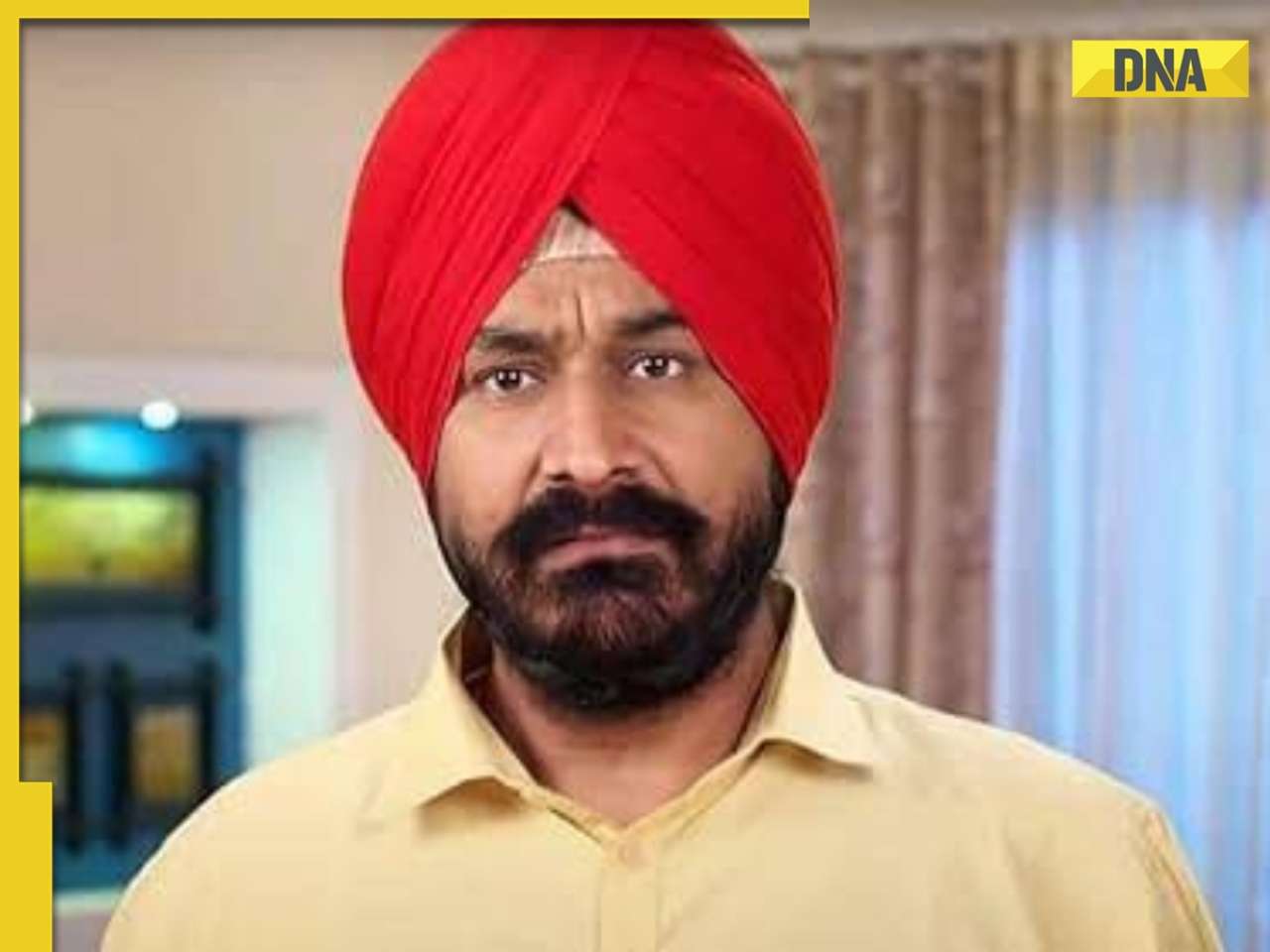
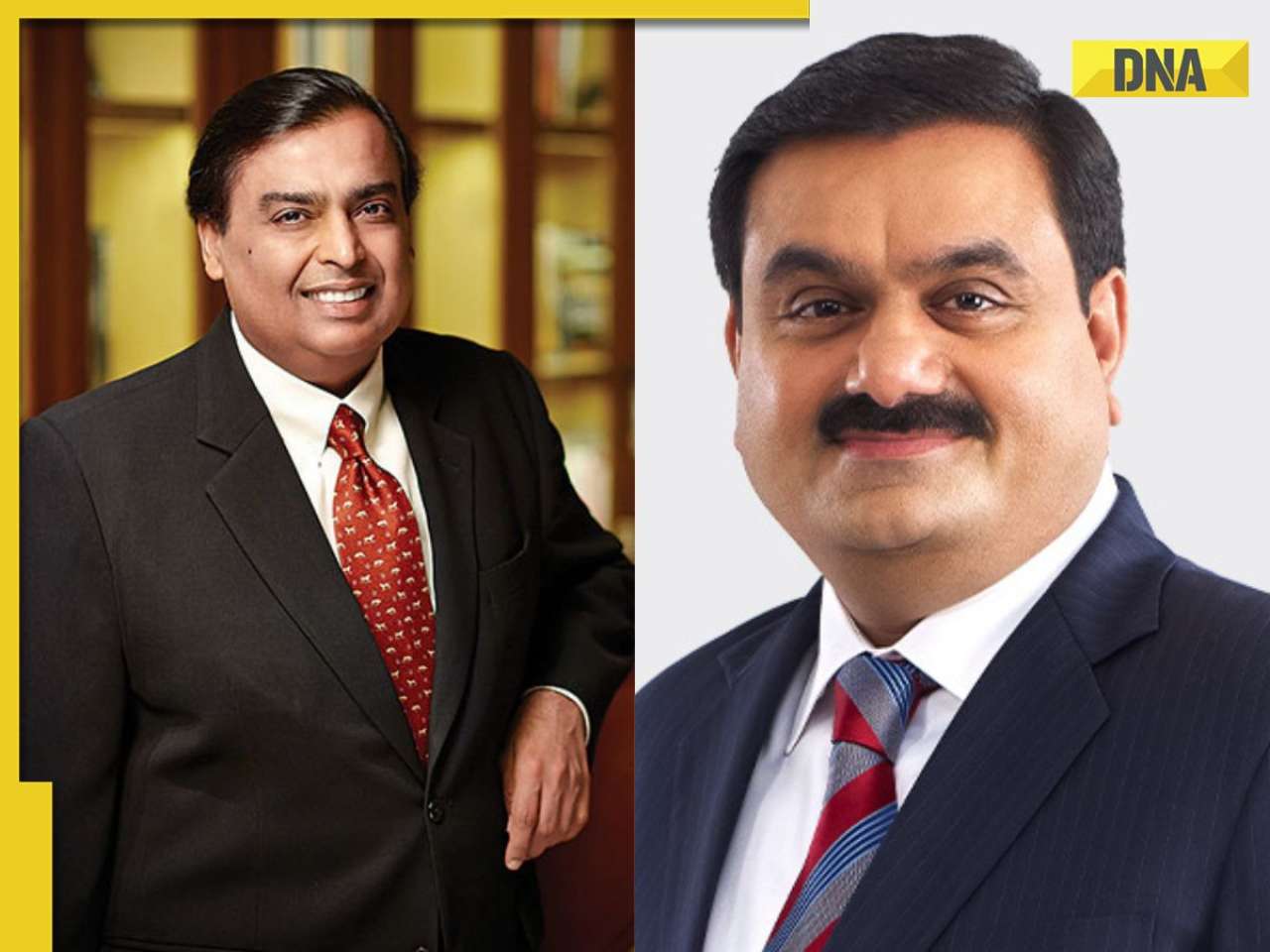
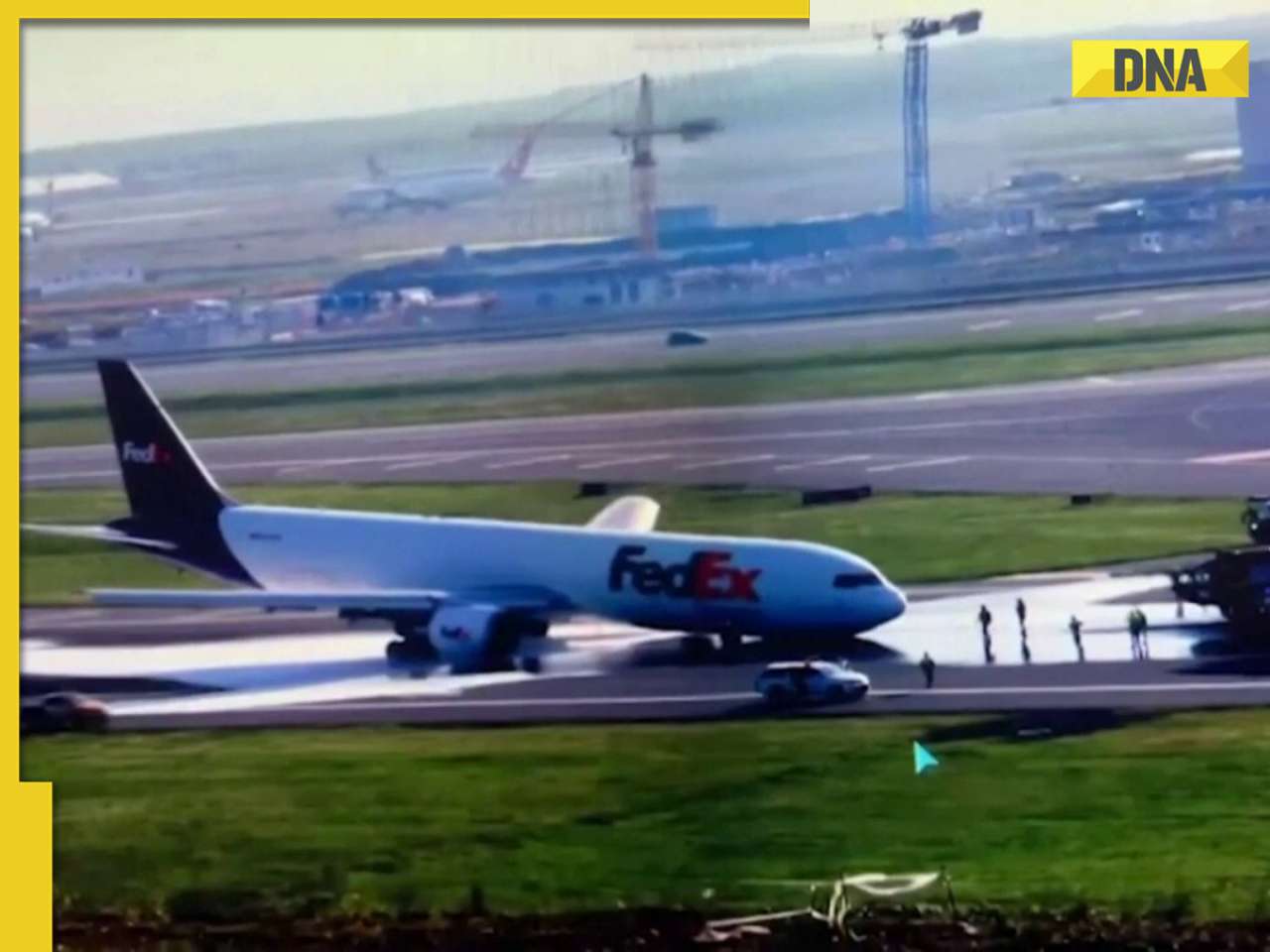




















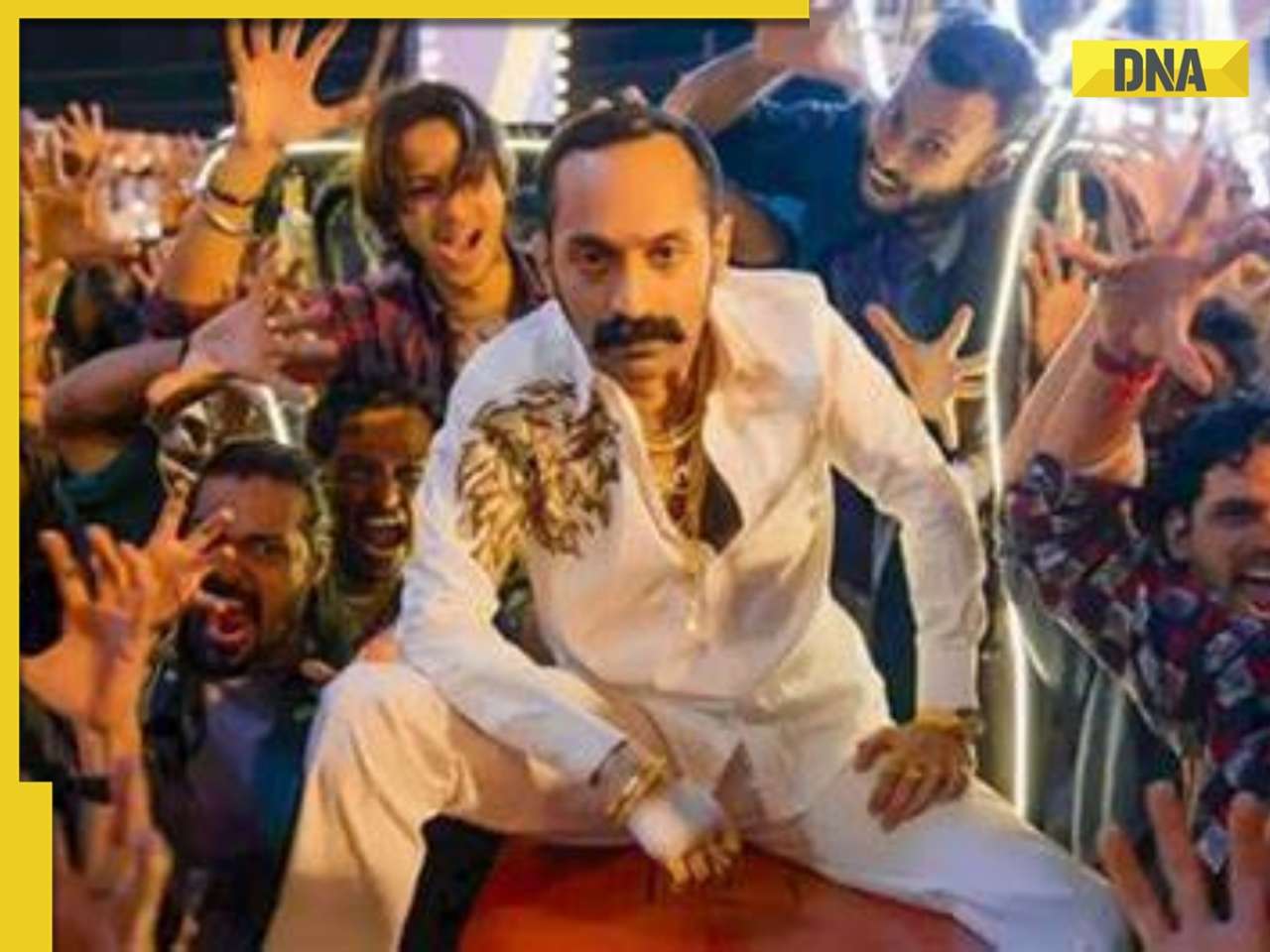

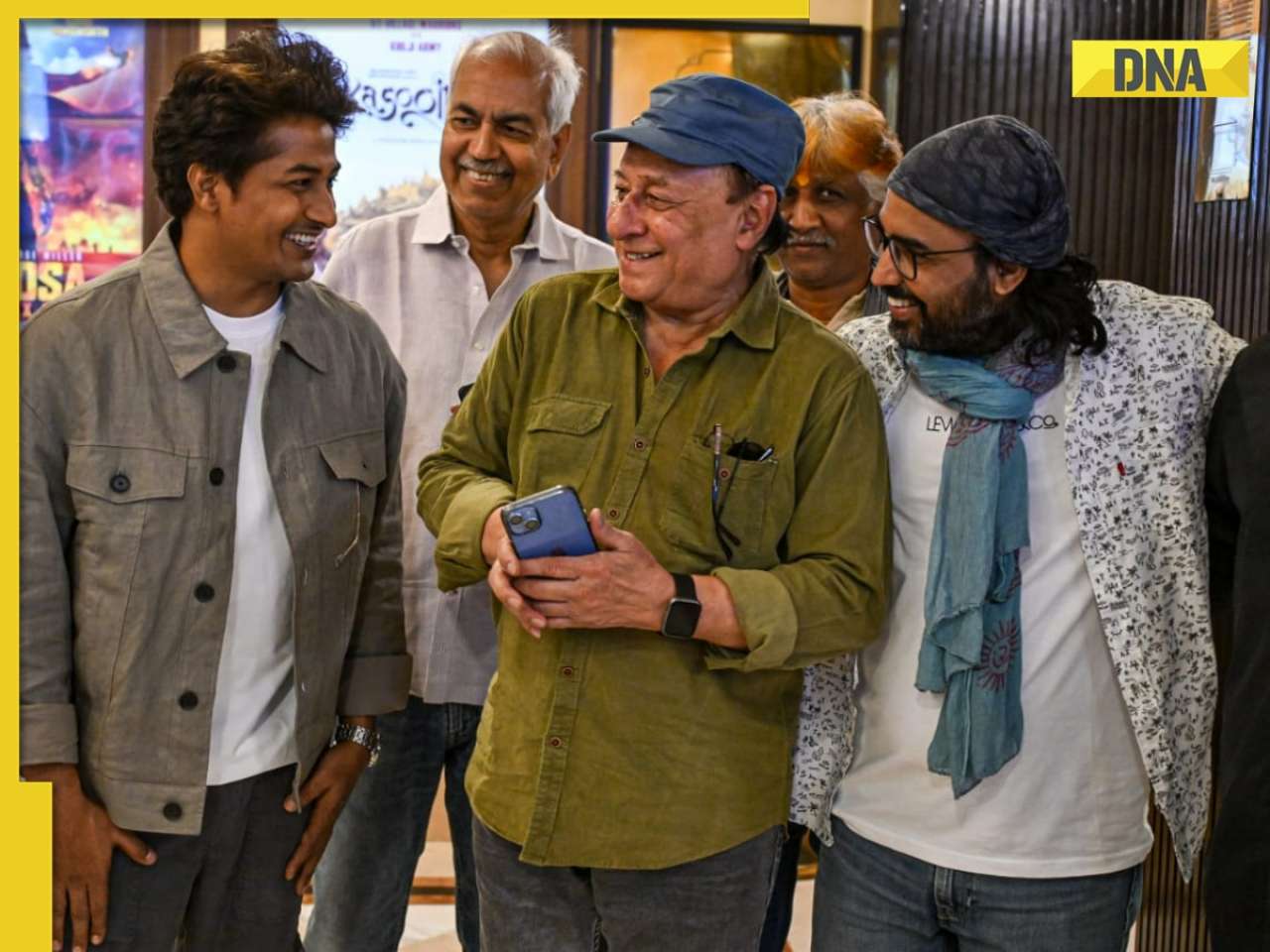
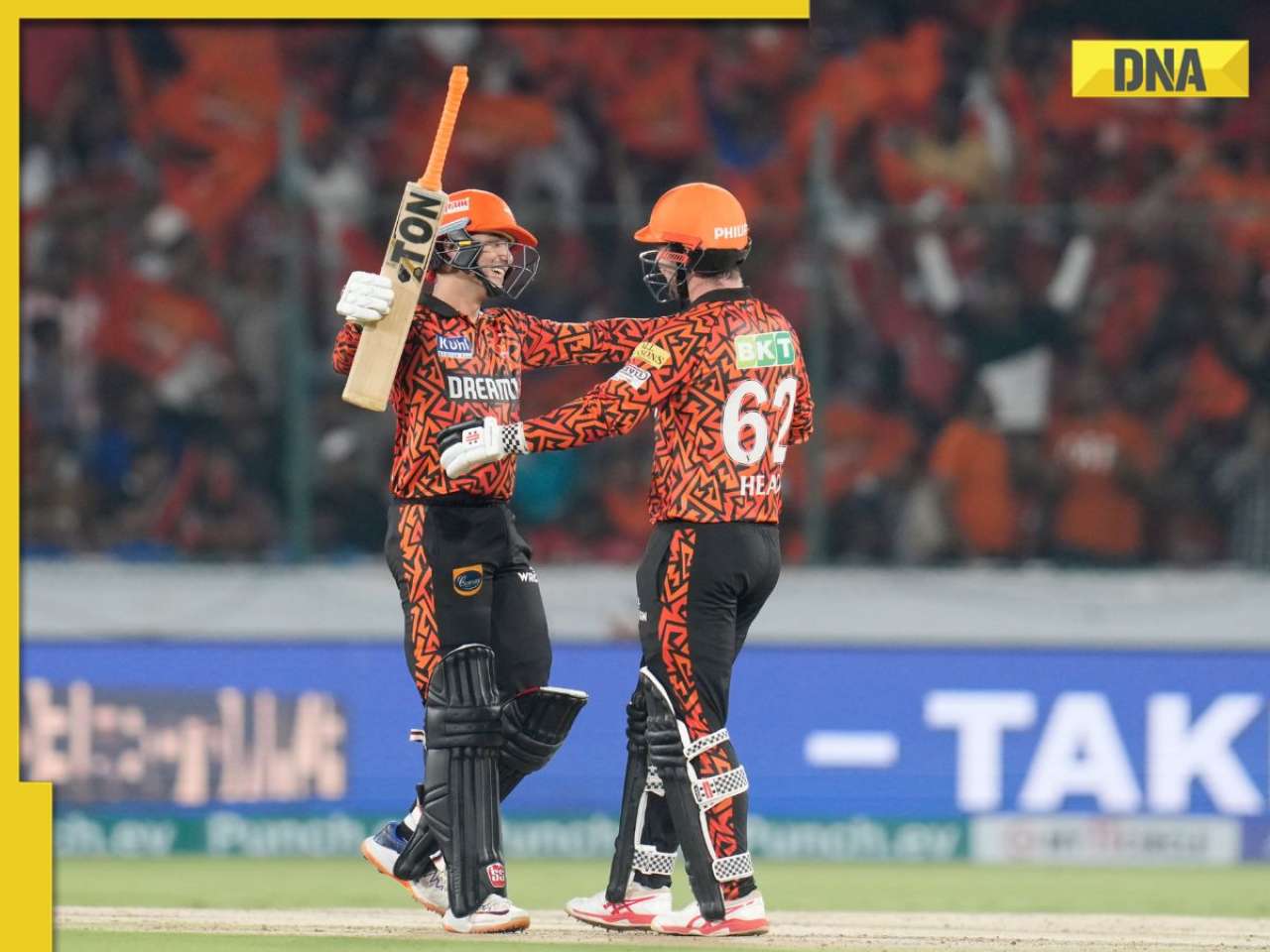
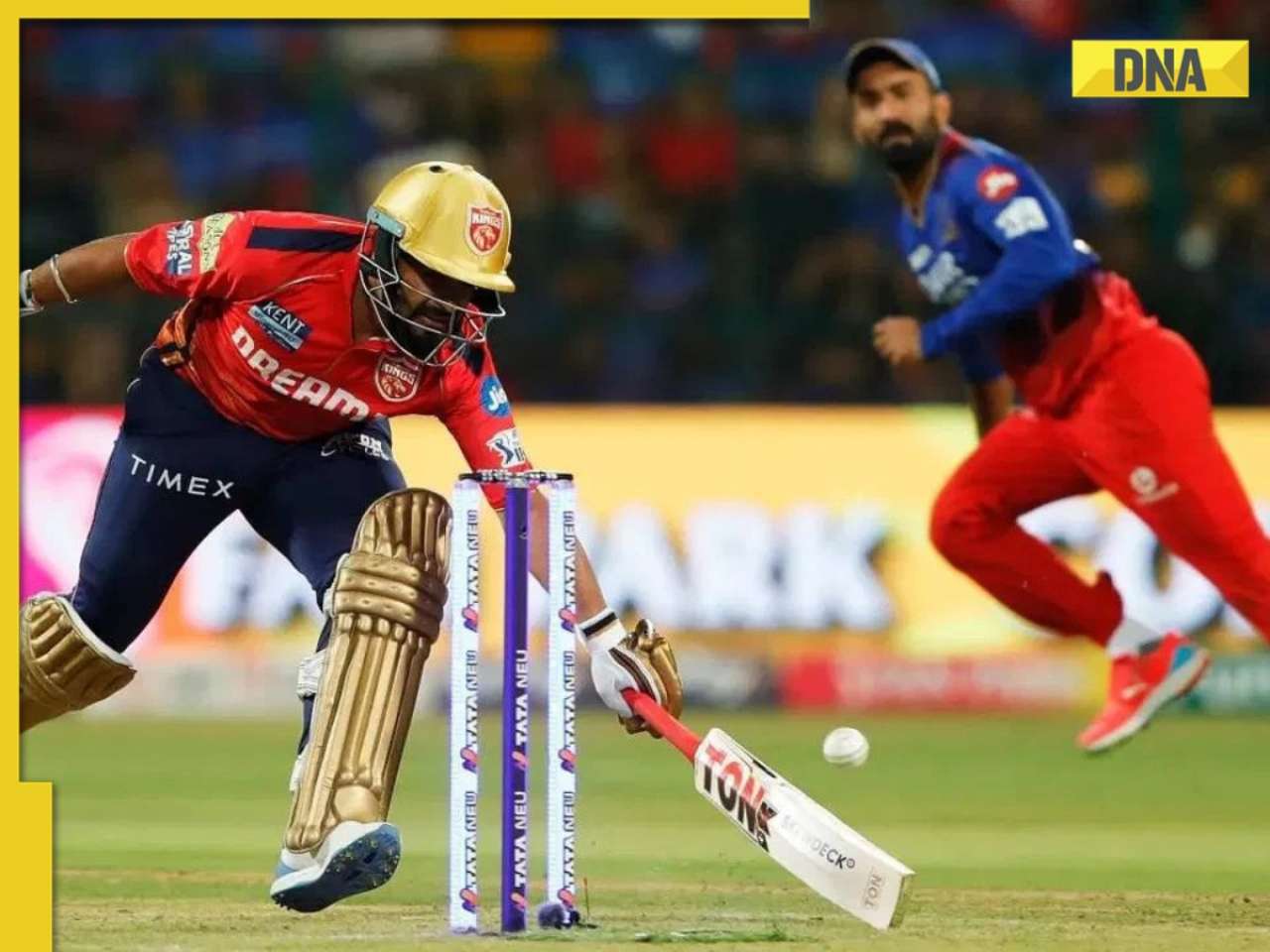
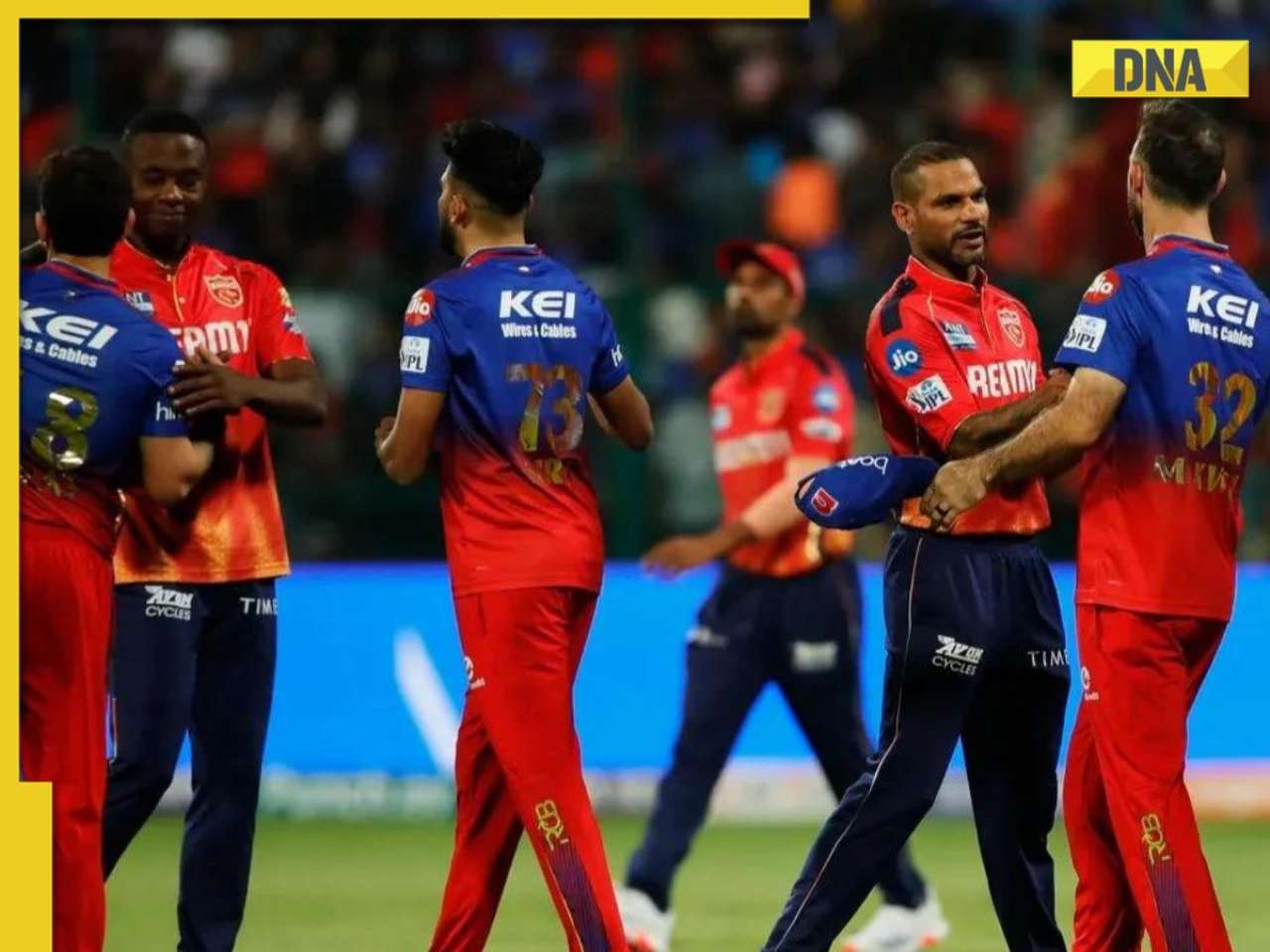
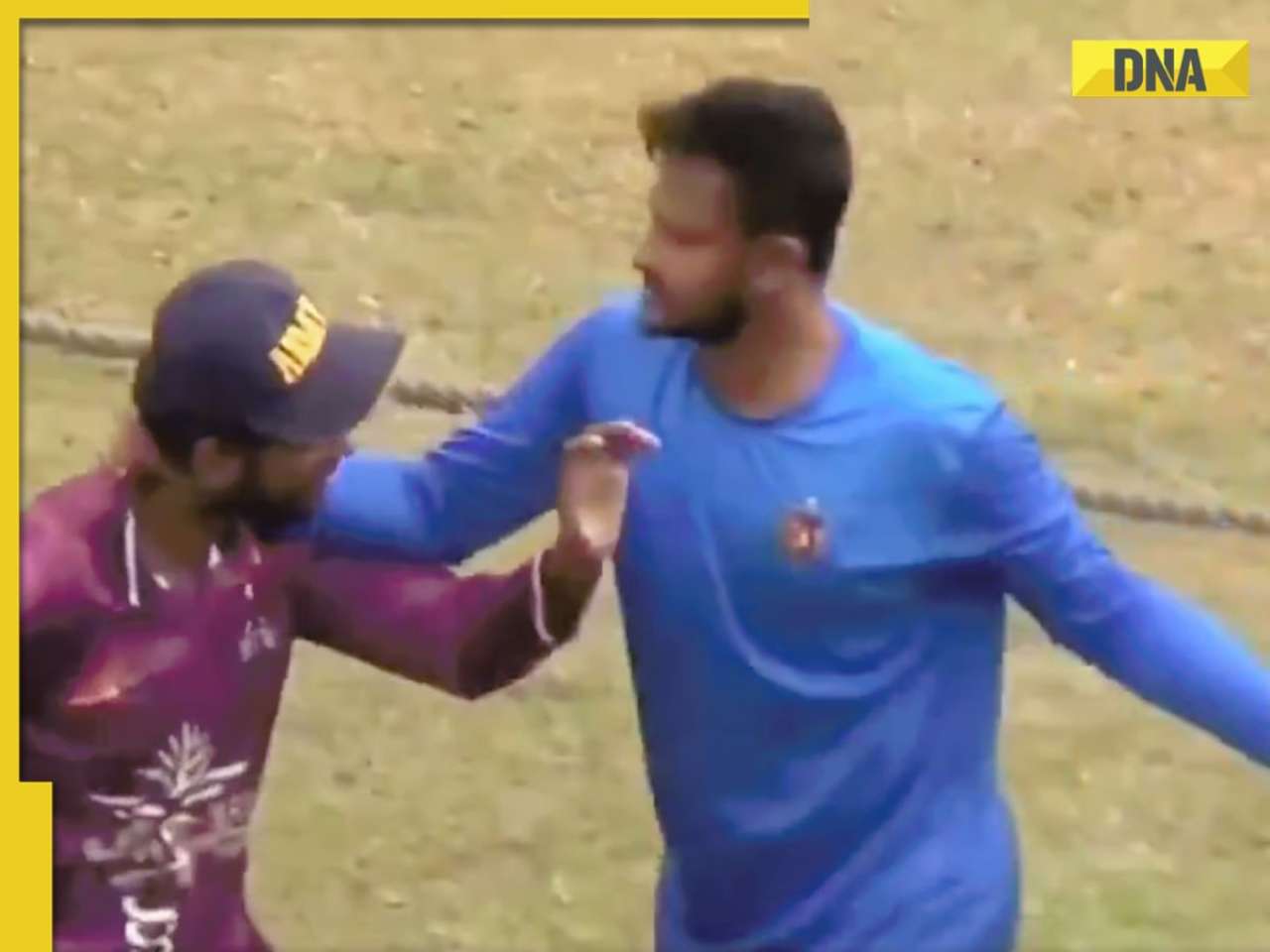
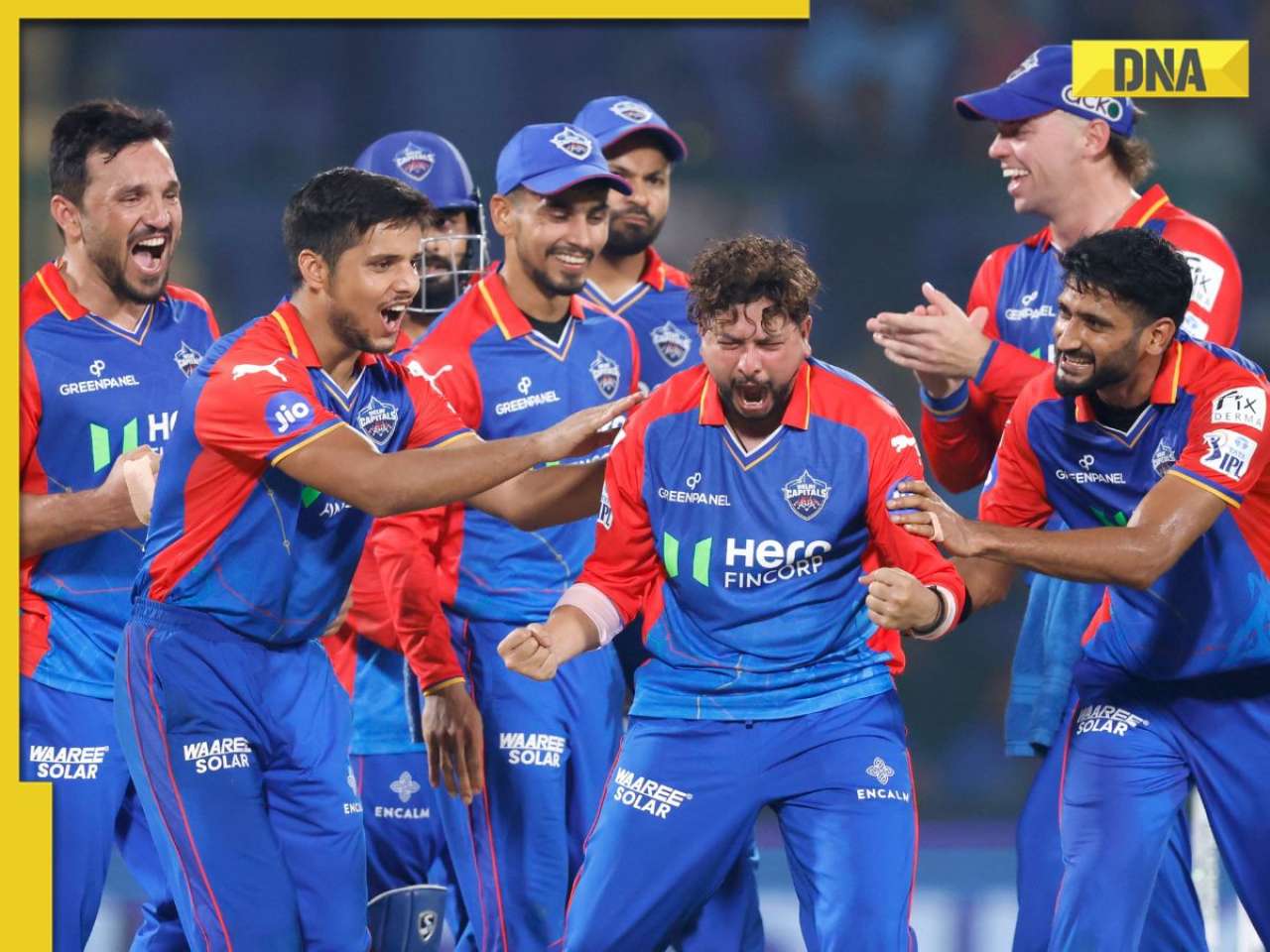
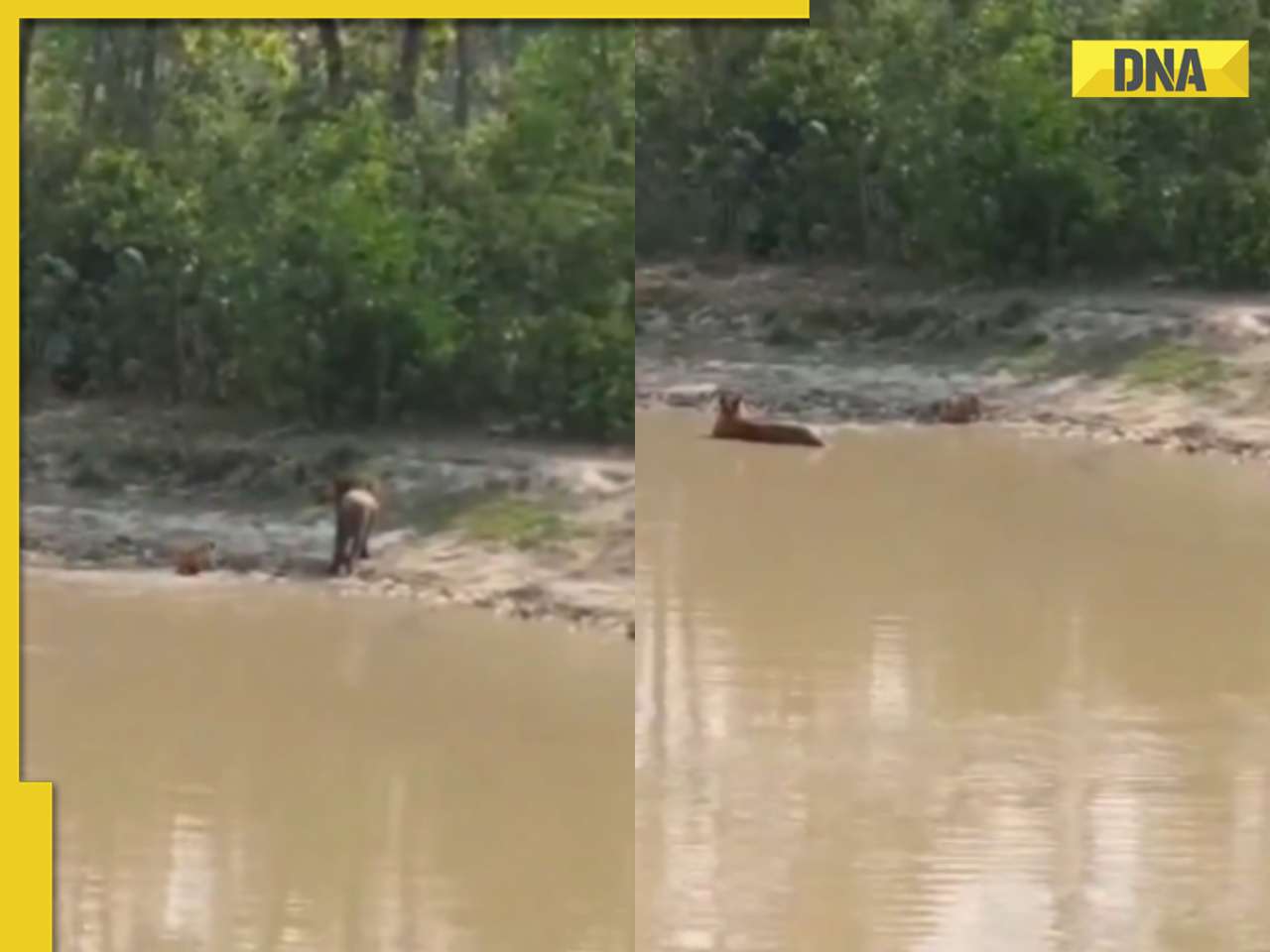

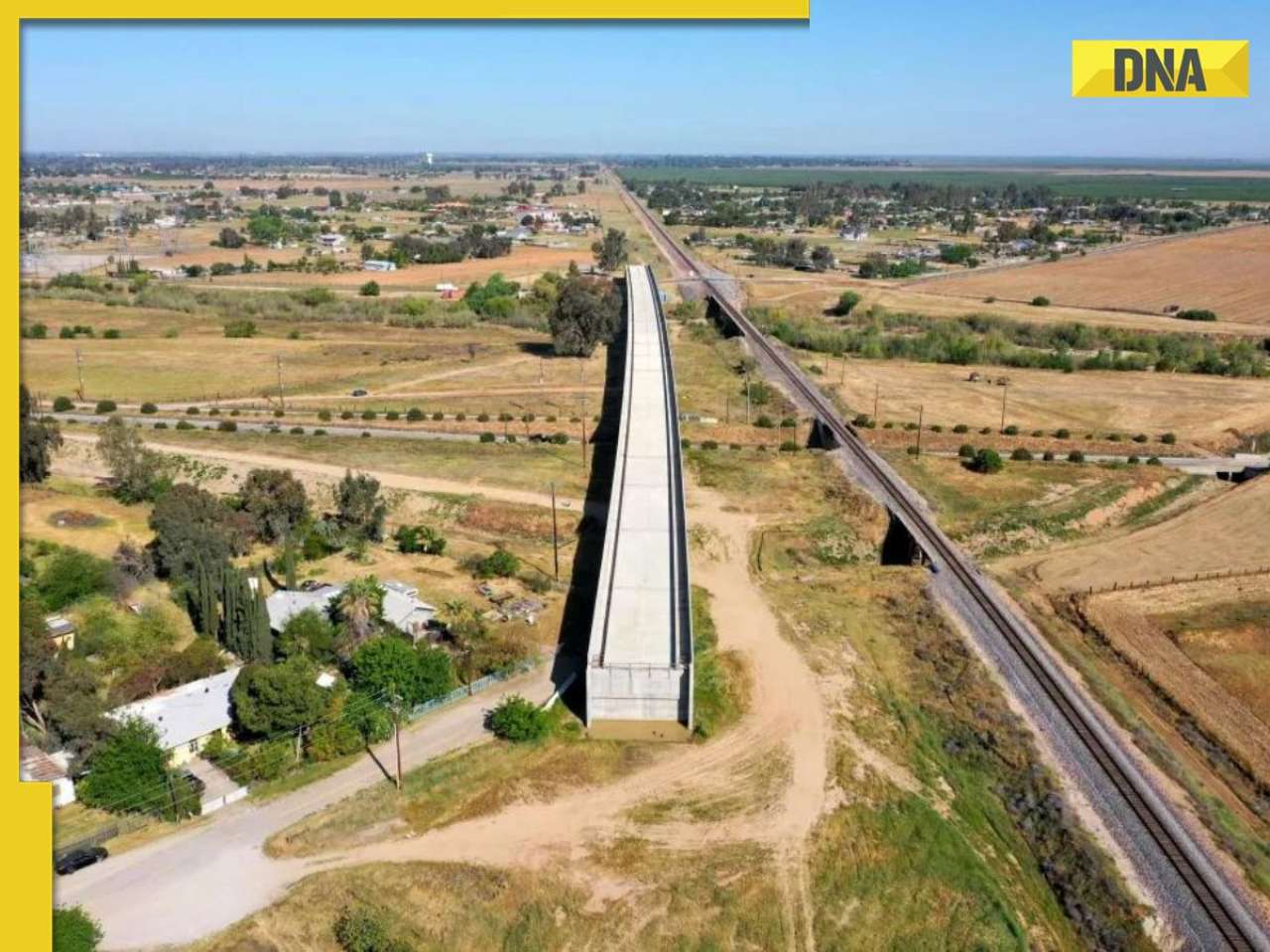






)
)
)
)
)
)